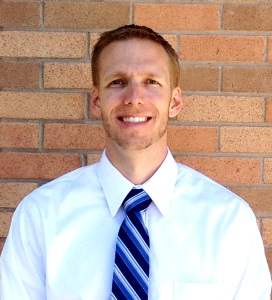There are many theory’s and ideas as to why people have and suffer from addiction. Whether you are struggling with an addiction or have a loved one suffering from an addiction, you probably have asked the question “WHY?” Although there is no concrete answer to this question, I believe there are some fundamental ideas that will help you understand this question.
I believe one important factor as to why people suffer form addiction is an emotional/spiritual “dis-ease”. People, for a multitude of reasons, are not at ease with themselves or their life. I explain that using drugs is not the problem, but a symptom of a much deeper and larger problem and this problem is usually rooted in emotional and or spiritual challenges. The following diagram is The Cycle of Addiction and comes from Craig Nakken’s book, The Addictive Personality.

“A” is where one often enters addiction and this represents pain, hurt, resentments, stress, anger etc. Often these feelings stem from life situations where we start to develop a core belief of “I am not good enough” or “I am not a good person.” We don’t like to feel these unpleasant emotions and this leads us to “B”, which the desire to have relief from such emotions. This leads to “C”, using drugs and alcohol, which takes away the pain, hurt, resentment, stress, anger, etc (albeit is only temporary, it still takes it away). Unfortunately, this brings us to “C”. This is what I call pain squared. A common feeling at this stage of the cycle is shame. It is important to understand the difference between shame and guilt. When I feel guilt, I feel bad for what I did. When I feel shame, I feel bad for who I am, which reinforces the core belief of “I am not good enough” or “I am not a good person.” This added emotional pain leads us to want relief and so the cycle continues on and on in an exponential way.
The following are definitions of addiction from different authors that I like and believe explain what addiction is about.
“A habitual response and source of gratification or security… a way of coping with internal feelings and external pressures.” (Stanton Peele, The Truth About Addiction and Recovery)
“An attempt to control and fulfill (the) desire for happiness”
“A pathological (abnormal) love and trust relationship with an object or event.” (Craig Nakken, The Addictive Personality: Understanding the addictive process and compulsive behavior)
“An attachment to something or someone outside yourself that you feel you need to provide a sense of inner satisfaction or relief” (Edmund J. Bourne, The Anxiety and Phobia Workbook)
When trying to understand addiction, it is important understand these ideas and not the beliefs that those with an addiction or addictions are weak, lazy, stupid, defiant, screw ups, junkies, worthless, criminals, etc. Ultimately, addiction is about finding happiness. People are unhappy with their lives and unfortunately they find temporary happiness in drugs, alcohol or other addictive behaviors. When we look at addiction as a means to take away hurt and pain, we will become more compassionate and understanding with ourselves if we are the one with the addiction or toward our family and friends if they are the ones suffering from addiction. We will understand that addiction is and emotional “dis-ease”.
This post was originally posted on www.reachgreaterheights.com.
 Garron Griffitts, LCSW, is an individual and couples therapist who specializes in the field of addiction and recovery. He is the founder of Reaching Greater Heights and is part of the Arizona Family Therapy Group.
Garron Griffitts, LCSW, is an individual and couples therapist who specializes in the field of addiction and recovery. He is the founder of Reaching Greater Heights and is part of the Arizona Family Therapy Group.
He works with couples on establishing safety and security within their relationship and helps couples understand each other and how they can be a better support to one another.
Click here to read more about Garron Griffitts and the therapy he provides at Arizona Family Therapy Group.
